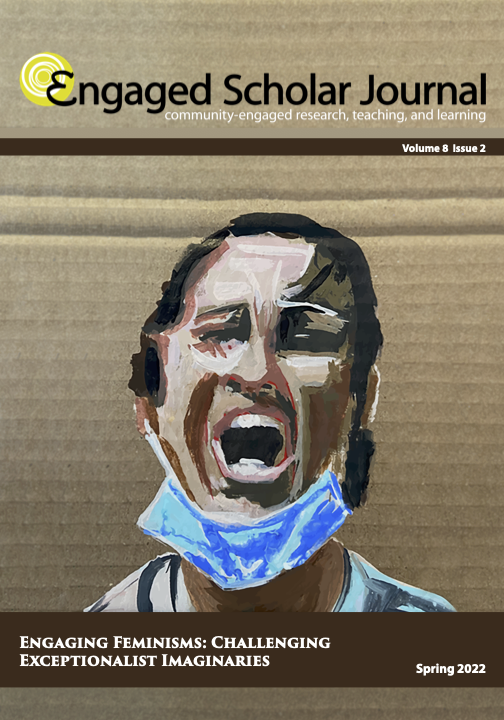Exposing Exceptionalisms: B(e)aring Complicities and Framing Resistances
DOI:
https://doi.org/10.15402/esj.v8i2.70811Keywords:
exceptionalisms, neoliberalism, power differentials, feminist praxis, equity diversity inclusion decolonization (EDID)Abstract
Exceptionalisms are reductive, short-sighted, and often convoluted rationalizations for refusing relational accountabilities. They systematically deliver narrowly conceived benefits to some at great expense to others who are habitually held from public view and voice. In neoliberal times, excuses for ignoring damage and justifying harms are legion. Our planet is choking on the standard business practice of externalizing costs while permitting pollution, social ills, and health consequences to pile up in the lives of marginalized peoples, species, and places, with complicit nation states increasingly ill-equipped to address the fallout. Some exceptionalisms, like the “doctrine of discovery,” are perpetrated for centuries with virtual impunity, masquerading as sacred edict until the mass graves of children surfacing from residential school grounds reveal assimilative evils that are more difficult to ignore for those who have benefitted most.
References
Published
How to Cite
Issue
Section
License
Authors who publish with this journal agree to the following terms:
- Authors retain copyright and grant the journal right of first publication with the work simultaneously licensed under a Creative Commons Attribution License CC BY 4.0 that allows others to share the work with an acknowledgement of the work's authorship and initial publication in this journal.
- Authors are able to enter separate, additional contractual agreements for the non-exclusive distribution of the journal's published version of the work (e.g., post it to an institutional repository or publish it in a book), with an acknowledgement of its initial publication in this journal.
- Authors are permitted to post their work online (e.g., in an institutional repository or on their website) after the publication of their work in the Engaged Scholar Journal.
- Please note that while every opportunity will be taken to ensure author participation in the editing process, due to time constraints final copyediting changes may be made before publication to ensure APA adherence throughout all submissions.




